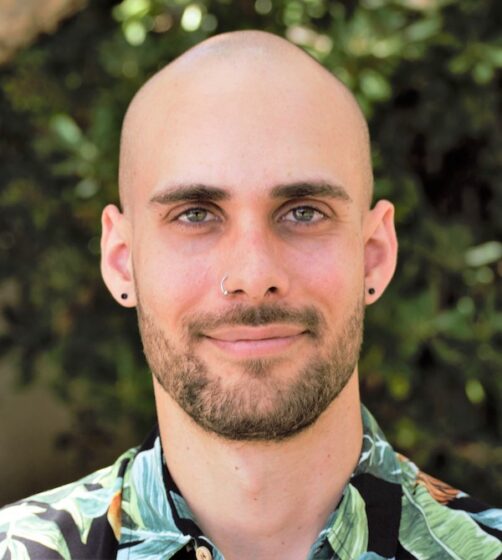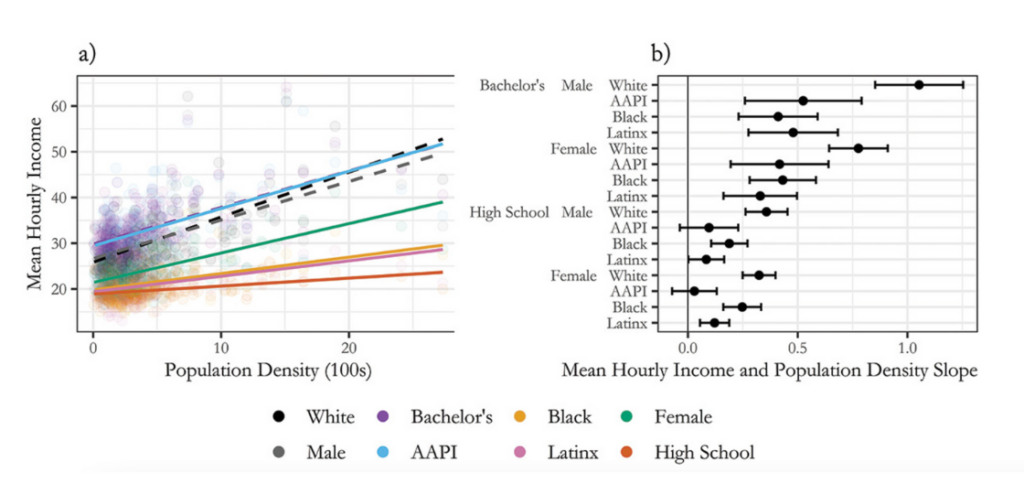Max Buchholz, who focuses on urban inequality, joins the Department of City & Regional Planning
“Underlying all of my work is the question of how places create opportunities for people.”
The Department of City & Regional Planning is delighted to welcome its newest faculty member, Max Buchholz. An urban and economic geographer, Buchholz joins the department as an assistant professor from UCLA, where he held a postdoctoral fellowship in the Department of Urban Planning. Buchholz’s interdisciplinary research, which employs both quantitative and qualitative methodologies, is tied together by a sustained focus on inequality.

Buchholz first became galvanized by issues of social and economic inequality as an undergraduate at UC Berkeley, where he majored in history. “Coming to Berkeley as a junior transfer student from my small hometown was eye-opening,” he says. Subsequently, he began volunteering and working around issues of college access and racial justice.
It was while pursuing an interdisciplinary master’s degree in Latin American studies at UCLA that Buchholz first became excited about urban planning. Cities became the focus of his investigations into inequality, adding a spatial dimension to his research, and he went on to earn his PhD in geography from the University of Toronto.
Buchholz’s recent research, published in the Journal of Urban Affairs, Journal of Economic Geography, Environment and Planning A: Economy and Space, and the Cambridge Journal of Regions, Economy and Society, among other leading publications, examines the dynamics of social and spatial inequalities between cities, within cities, and between different groups of people.
“Underlying all of my work is the question of how places create opportunities for people. I am interested in the drivers of inequality and how different populations access employment opportunities in cities and across urban regions,” Buchholz explains. “My research investigates the geography (and geographical determinants) of inequality between different social and class groups, and how these inequalities are shaped by spatial forces like segregation, congestion, and urban form.”

In a paper published in the Journal of Urban Affairs last fall, for example, Buchholz uses large census data sets to show that the higher wages offered in cities primarily benefit white, male workers. “This research suggests that urbanization may actually cause inequality; dense cities can offer more opportunities, but these are highly racialized and gendered.” As cities get denser, congestion also rises; this has disproportionately adverse effects, in the form of both wage and commuting inequality, for women and people of color.
Buchholz is currently working on a project that further examines the spatial dimensions of urban inequality by looking at labor and housing markets in both large and small California cities. For this study, he is leaning into qualitative research to dig deeper into the experiences of different groups of people in large and small cities, interviewing people who have moved from the Bay Area or Los Angeles to Sacramento or Fresno.
— Dan Chatman, Chair of the Department of City & Regional Planning
This semester at CED, Buchholz is teaching a timely graduate-level course, Land and Housing Market Economics, that looks at how land values, housing production, and labor markets impact California’s housing affordability crisis. Students will also explore how housing availability determines access to opportunities for various groups. Buchholz plans to use the development of housing at People’s Park as a case study.
“I’m over the moon to be back at Berkeley, to engage in the intellectual life of the department and the campus,” he says. He is particularly looking forward to working with Berkeley students. “They’re brilliant and I am sure we will learn a lot from each other.”
The department is eagerly anticipating Buchholz’s contributions. “Max’s research adds another dimension to the Department of City & Regional Planning’s commitment to advancing more equitable urban futures,” says Chair Dan Chatman. “His work on how cities may generate inequality, through unequal access to housing and jobs, is at the cutting edge of research on the impacts of metropolitan growth. It is a promising direction that will help inform policy and planning.”